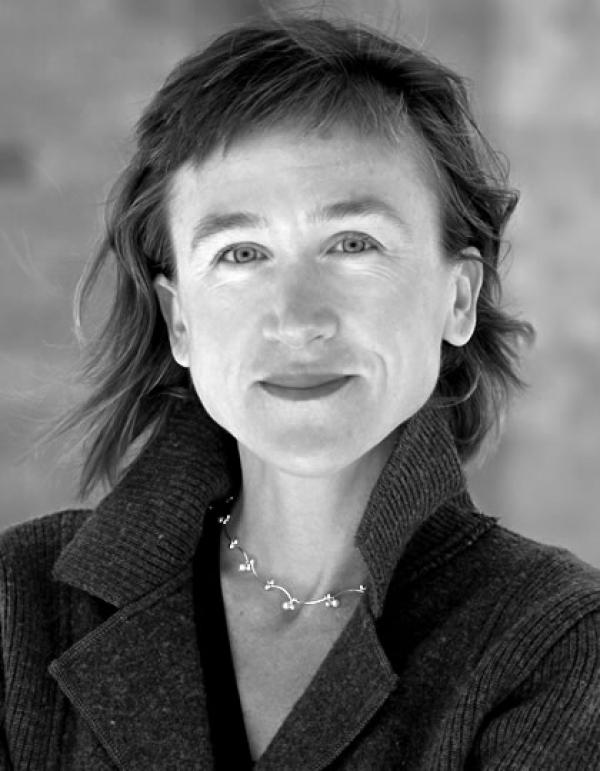Jaqueline Kolosov-Wenthe

Photo by Artie Limmer
Bio
Jacqueline Kolosov-Wenthe is the author of the young adult novels, The Red Queen's Daughter and the forthcoming Miranda, both from Hyperion. Her poetry collection, Vago, was published by Lewis-Clark Press. The poetry collections, Modigliani's Muse, and Ordinary are forthcoming in 2008-2009. The co-editor of two anthologies of women's prose, Jacqueline's own prose and poetry have appeared in journals in the U.S. and abroad including Shenandoah, Orion, The Southern Review, Poetry, and PRISM International. She holds degrees in literature from the University of Chicago (B.A. & M.A.) and New York University (PhD) and is an Associate Professor of Creative Writing at Texas Tech University. A native of Chicago, she now makes her home with her husband, daughter, and a displaced welsh corgi in a wind-swept, often sunny corner of west Texas.
Author's Statement
I am grateful and honored to receive this fellowship from the NEA which comes at a most rewarding and challenging time in my life. In the same year I applied for the grant I gave birth to my daughter, Sophie; published my first novel, The Red Queen's Daughter, and my first full-length poetry collection, Vago. (I read and reread proofs and before that copyedited manuscripts throughout my pregnancy.) The NEA has become for me a validation of the time I devote to writing, time which I must inevitably spend apart from my daughter. Perhaps, then, it is most fitting that "Solstice in the Jardin du Luxembourg" - like so much of my writing - focuses on relationships among women, especially those between mothers and daughters. "Solstice" was the first piece I wrote after confirming my pregnancy, and it is infused with wonder and uncertainty, as well as with the continuity I experienced in Paris's most family-centered garden. Vago is an Italian Renaissance word meaning 'loveliness within reach, yet impossible to grasp.' If I have an aesthetic, this elusive word strives to define it. By allowing me the gift of time and the financial resources necessary to commit more of my energy to writing, the NEA has endowed me with the privilege and the responsibility of continuing to pursue the loveliness - the moth-light grace - I continue to find in a writer like Virginia Woolf, whose remarkable vision motivated "Solstice's" own.
From the short story "Solstice in the Jardin du Luxembourg"
Having talked to her favorite friends on the carousel - the white pony with a chipped golden tail, and the vividly-painted rooster who always waits for her and is disappointed when she doesn't ride him while trying to grab the carousel operator's brass ring - Marie Claire wants to go home. But Paul is climbing on the jungle gym - his neat blue shirt riding up over his belly in a way that would annoy their mother - and he will continue to play there until Coquelicot checks her watch again, then tells him it's time to leave.
Marie Claire finds her nanny's face pretty, though it is very different from all the other faces she knows. All the people in Marie Claire's family have blue or pale green eyes, but Coquelicot's are almost black. Sometimes, Marie Claire believes Coquelicot's eyes are dark because they are like the poppies for which she was named. Believing this, Marie Claire sometimes looks at the flowers and almost expects a person to climb out, or perhaps a human eye will emerge where there is now only stamen. She once asked her father about the reason for Coquelicot's slanted black eyes, her wide-planed face, and ink-dark hair, and he took her over to the globe in his study. Pointing out a bumpy country far from France, he said, "China. This is where Coquelicot was born. In China, the people look like her." At first, Marie Claire had a difficult time understanding what he meant, but when she began searching for and finding people whose eyes and noses and hair resembled her nanny's, she thought ‘China,' and pretty soon she could picture all of them climbing into bright boats (like the one with the bold red and yellow sails the older boy was carrying, she realizes now) and making the long journey to France.
"One day I will go to China," Marie Claire told her father, "and people will wonder about me there." Her father told her that this was a good idea. He told her to be sure to pack enough warm clothes. "And Lapin," she reminded him. But he seemed too puzzled by her need to find a flower that somehow contained her story. And Marie Claire could not possibly explain a connection that felt very real to her - the way the crescent moon birthmark on her forehead was real, or their bristly-coated terrier Gericho's sharp bark. So she just said, "Oh Papa, you silly," words that left her feeling unsatisfied.

